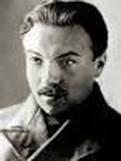In 1914 Engelke was gaining recognition as a poet of industrial Germany, with works that celebrated labour and the working man, cities and factories. His poem At the Seashore seems uncharacteristic in its subject matter. There is a machine-like rhythm to its lines and its rhymes, but it is perhaps a rare reflection on the vastness of nature and the wider world. It is ambiguous as to whom it is addressed – to the sea itself, or to the author himself, or both. Here we present the original and a new translation.
In 1908 Edward Thomas wrote “Man seems to me to be a very little part of Nature and the part I enjoy least. But civilisation has estranged us superficially from Nature, and towns make it possible for a man to live as if a millionaire could really produce all the necessities of life - food, drink, clothes, vehicles etc and then a tombstone." It was to be another six years before he took up poetry – at the start of the war and a few weeks before enlisting. He was to write a lifetime of poetry in the two and a half years before he was killed, and in writing works that had nature, rather than humanity, at its heart, became for later generations a pioneer ecopoet and a voice that will resonate for many today.
The Combe

Its mouth is stopped with bramble, thorn, and briar;
And no one scrambles over the sliding chalk
By beech and yew and perishing juniper
Down the half precipices of its sides, with roots
And rabbit holes for steps. The sun of Winter,
The moon of Summer, and all the singing birds
Except the missel-thrush that loves juniper,
Are quite shut out. But far more ancient and dark
The Combe looks since they killed the badger there,
Dug him out and gave him to the hounds,
That most ancient Briton of English beasts.
Edward Thomas
b. London, 3 March 1878 d. Arras, France, 9 April 1917
At the Seashore

And the wind rushes his melodies,
Foam water plays around your toes -
Kneel down, wanderer, repose!
The sea washes o’er the sun on high,
And heaven’s flowers light the sky.
Which wave do you want to ride?
It will not always be a midday tide.
Roars a sea unto eternity,
Into silence, splendid, and mighty,
And no one knows how far you flow-
And if you reach your rest, or no
Life-long wanderer, you.
Gerrit Engelke
b. 21 October 1890, Hanover, Germany
d. Cambrai, France 13 October 1918
Und Welle kommt und Welle flieht,
Und der Wind stürzt sein Lied,
Schaumwasser spielt an deine Schuhe –
Knie nieder, Wandrer, ruhe!
Es wälzt das Meer zur Sonne hin,
Und aller Himmel blüht darin.
Mit welcher Welle willst du treiben?
Es wird nicht immer Mittag bleiben.
Es braust ein Meer zur Ewigkeit,
In Glanz und Macht und Schweigezeit,
Und niemand weiß wie weit –
Und einmal kommst du dort zur Ruh,
Lebenswandrer, Du.
 RSS Feed
RSS Feed
